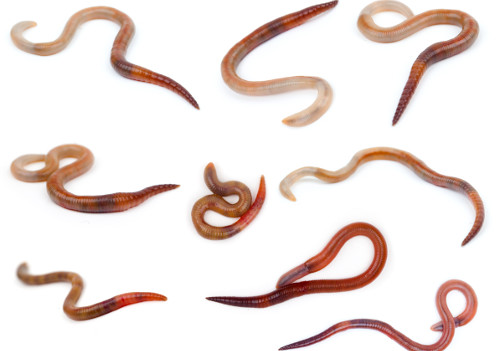Red Wiggler Worms - Essential for Healthy and Effective Gardens
Red Wiggler Worms - Essential for Healthy and Effective Gardens
Blog Article
Red Wiggler Worms Demystified: Opening the Tricks of Vermiculture for Greener Living and Nutrient-Rich Dirt
In the realm of sustainable techniques for improving soil quality and advertising eco-conscious living, red wiggler worms play a crucial yet usually forgotten duty. These simple creatures have the impressive capacity to change natural waste into nutrient-rich castings that act as a powerful natural plant food. By diving right into the globe of vermiculture, one can discover a variety of advantages that expand far past traditional composting approaches. Recognizing the ins and outs of caring for these worms, optimizing their setting, and utilizing their spreadings can bring about a greener way of living and healthier soil for plants to flourish.
The Function of Red Wiggler Worms
Red Wiggler worms play an important role in composting systems by successfully breaking down raw material right into nutrient-rich spreadings. These voracious eaters take in a range of natural materials, such as cooking area scraps, backyard waste, and paper products. As they feed, the worms' digestive system procedures break down the organic issue right into a penalty, dark, and nutrient-dense material understood as worm spreadings or vermicompost.
The spreadings produced by Red Wiggler worms are extremely beneficial for soil wellness and plant growth. They are rich in crucial nutrients like nitrogen, phosphorus, and potassium, which are crucial for supporting healthy plant growth. Additionally, worm castings have useful germs and enzymes that help improve dirt structure, boost water retention, and enhance nutrient uptake by plants.
Benefits of Vermicomposting

It boosts dirt structure, improves soil oygenation, and enhances dirt wetness retention. Vermicompost also enriches the soil with crucial nutrients like nitrogen, phosphorus, and potassium, promoting plant growth and general dirt fertility.
Additionally, vermicomposting supports sustainable gardening techniques by giving a natural and chemical-free option to artificial plant foods. Red Wiggler Worms. This eco-friendly approach not only improves the dirt but additionally helps in reducing reliance on damaging chemicals, promoting a greener and a lot more lasting way of horticulture
Establishing a Worm Container
When developing a worm container for vermicomposting, correct arrangement is vital to make sure the success of the composting procedure. The first step in setting up a worm container is picking an ideal container.
After including the bed linen, introduce the red wiggler worms to the container. The worms must after that be offered with food scraps such as fruit and vegetable peels, coffee grounds, and eggshells.
Consistently keep an eye on the moisture degrees and temperature in the worm container to ensure optimum conditions for the worms. With correct setup and upkeep, the worm bin will properly convert natural waste into nutrient-rich garden compost for your plants and garden.
Harvesting Worm Spreadings
To original site successfully collect nutrient-rich worm spreadings from your vermicomposting system, an organized harvesting approach is essential. When it comes time to harvest the worm spreadings, there are a couple of crucial steps to follow to ensure an effective process. First of all, quit adding fresh food scraps to one side of the worm container for a couple of weeks prior to gathering. This urges the worms to find out this here move sideways with fresh bedding and food, making it simpler to dig the castings from the opposite side.

Troubleshooting Common Issues
Recognizing and attending to common difficulties that may emerge during the vermicomposting process is vital for maintaining a effective and healthy and balanced worm container. Adding excess food scraps can lead to an accumulation of wetness and level of acidity in the worm container, possibly hurting the worms. Another problem is unpleasant look these up odors emanating from the worm container.
Furthermore, if the worm populace is declining or the worms show up harmful, maybe because of ecological stress factors such as extreme temperature levels or pH levels. Monitoring these variables and making needed changes is essential for the well-being of the worms. By fixing these typical problems quickly, vermicomposters can make certain a effective and smooth vermicomposting process while preserving a flourishing worm populace.

Final Thought
In conclusion, red wiggler worms play an important duty in vermiculture by breaking down organic matter right into nutrient-rich soil. Setting up a worm container is crucial for effective vermiculture, and collecting worm spreadings gives important compost for gardening.
As they feed, the worms' digestive procedures break down the natural issue right into a penalty, dark, and nutrient-dense material recognized as worm castings or vermicompost.
The castings created by Red Wiggler worms are very helpful for dirt health and plant development. Including excess food scraps can lead to a buildup of dampness and acidity in the worm bin, potentially damaging the worms.In addition, if the worm populace is decreasing or the worms appear harmful, it could be due to environmental stress factors such as severe temperatures or pH degrees. Establishing up a worm bin is important for effective vermiculture, and harvesting worm castings gives valuable garden compost for gardening.
Report this page